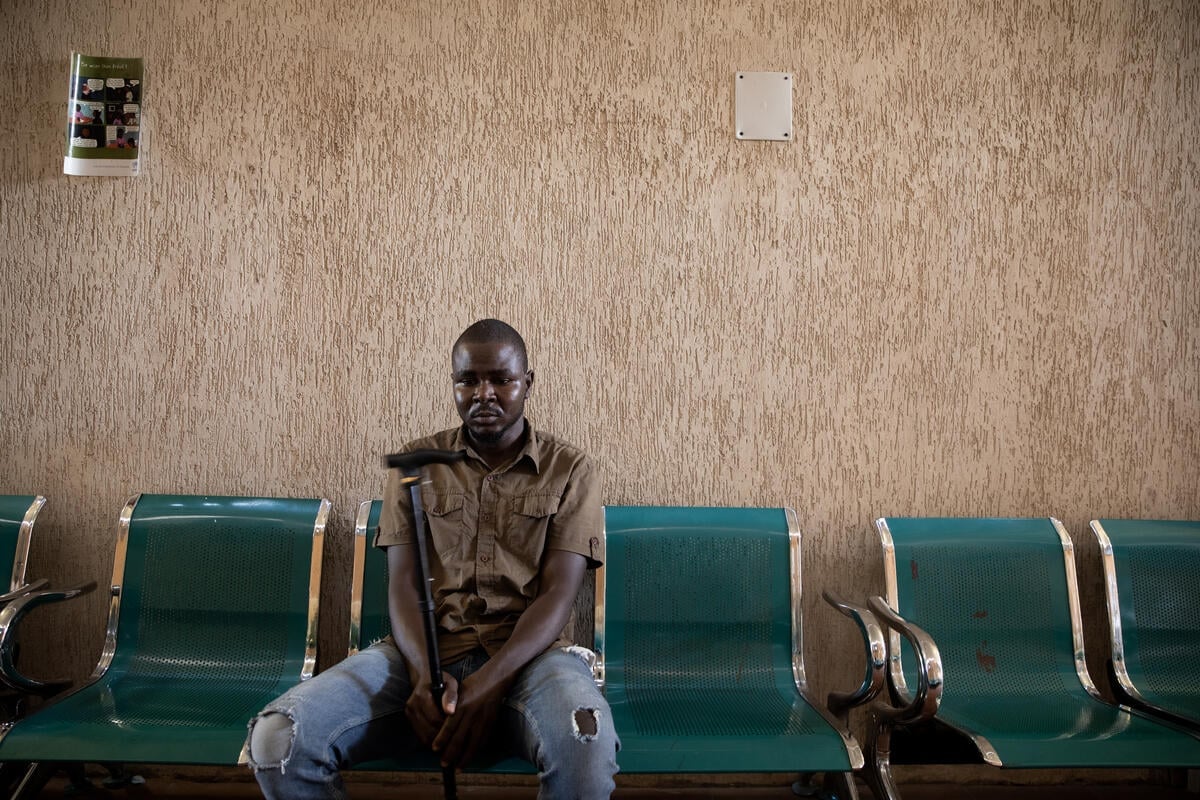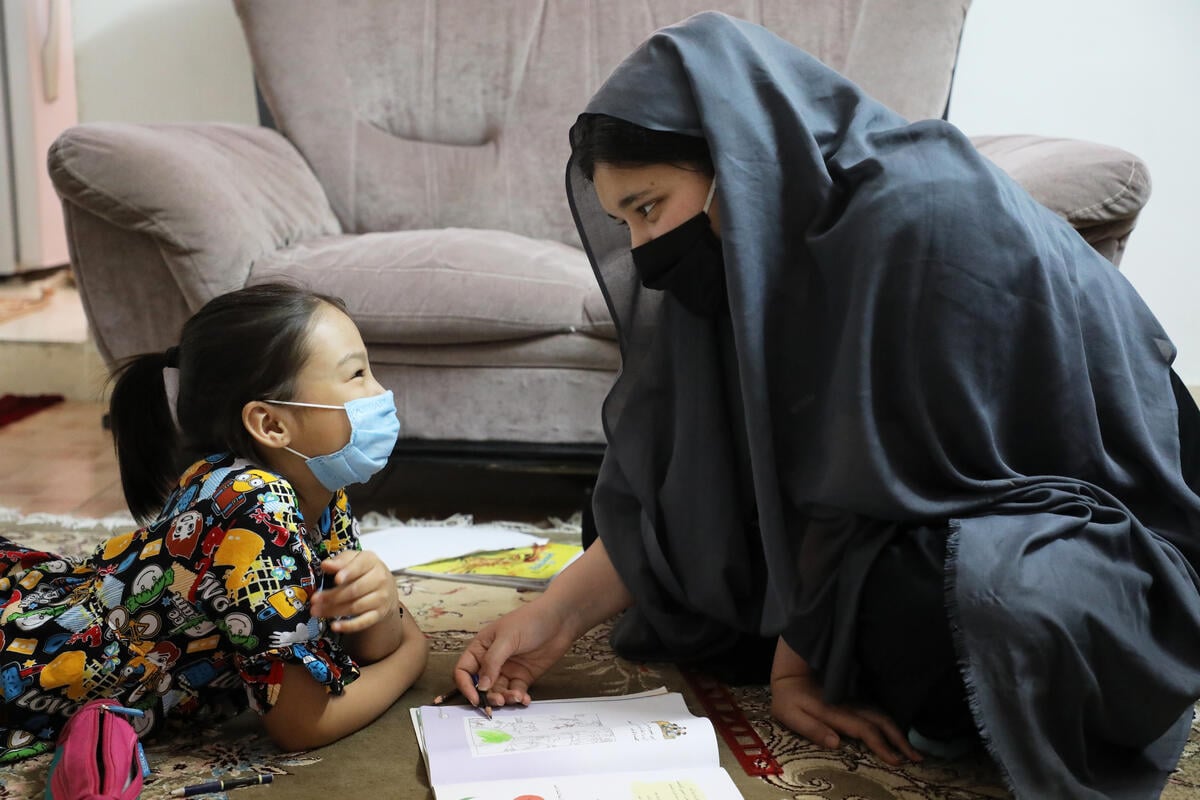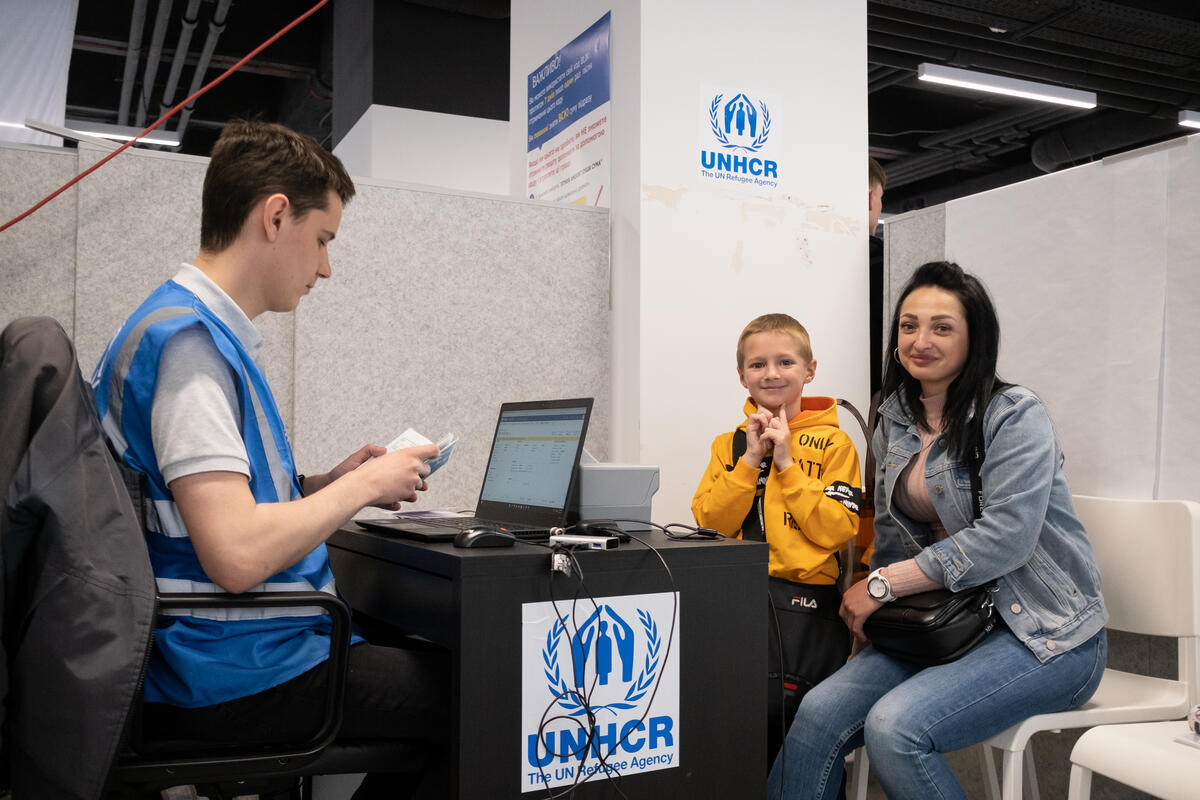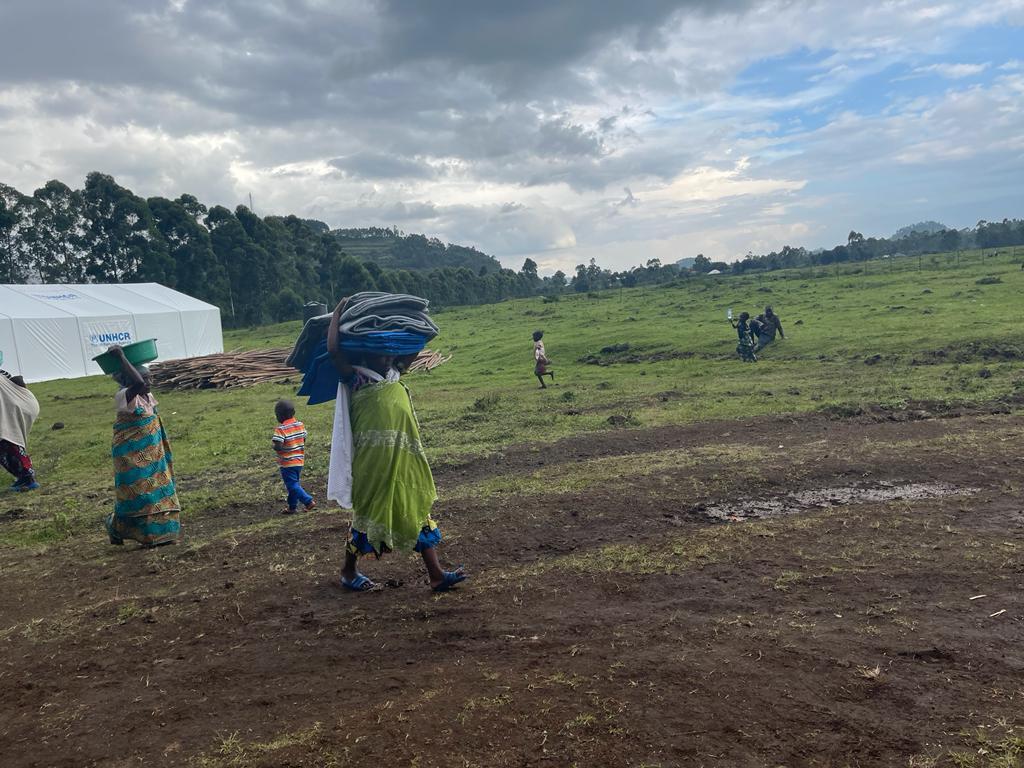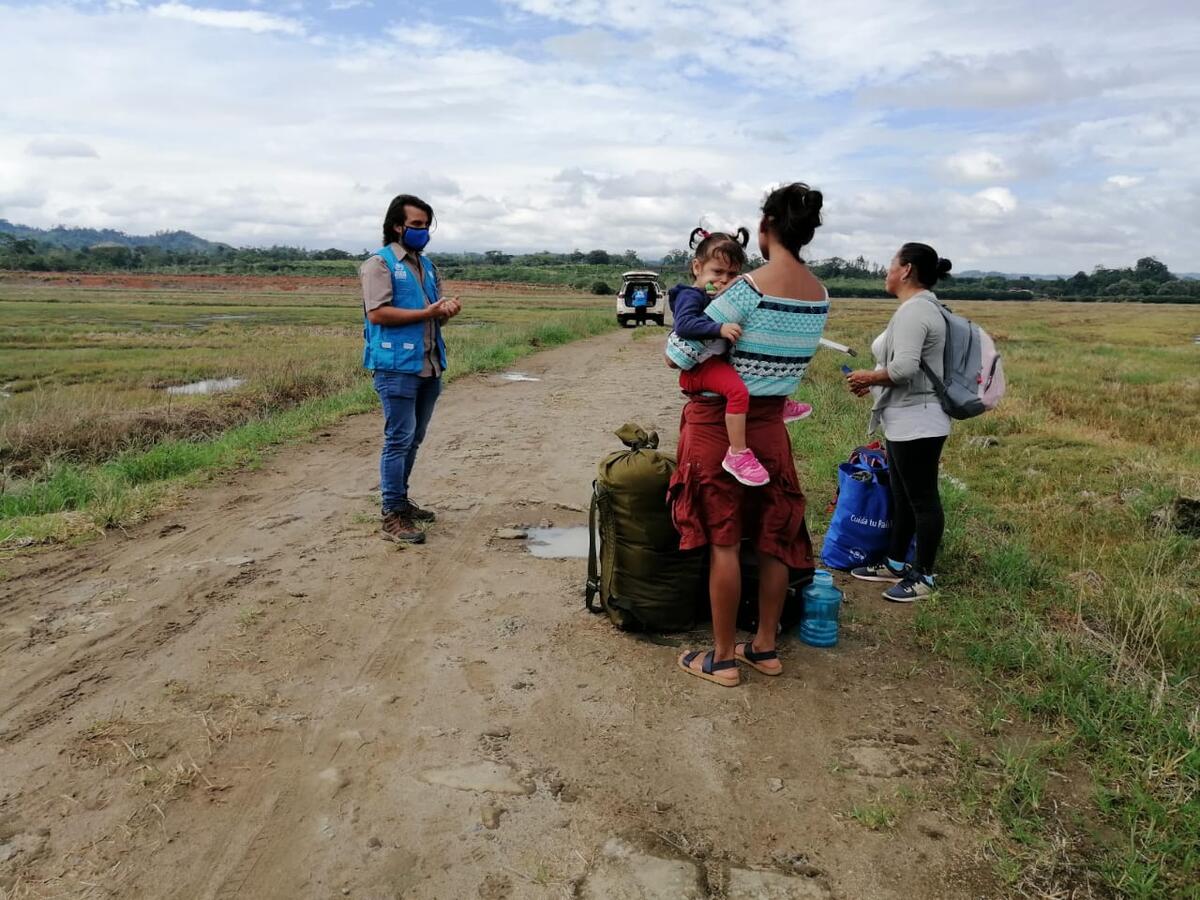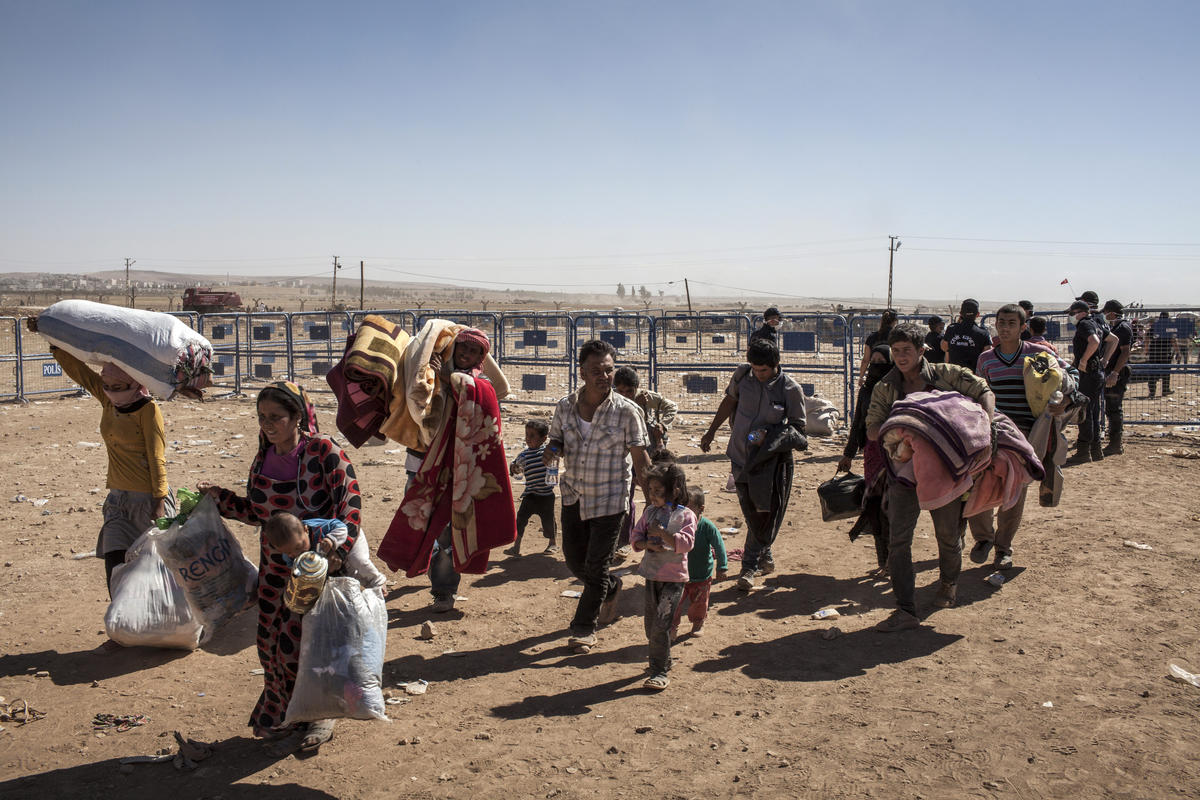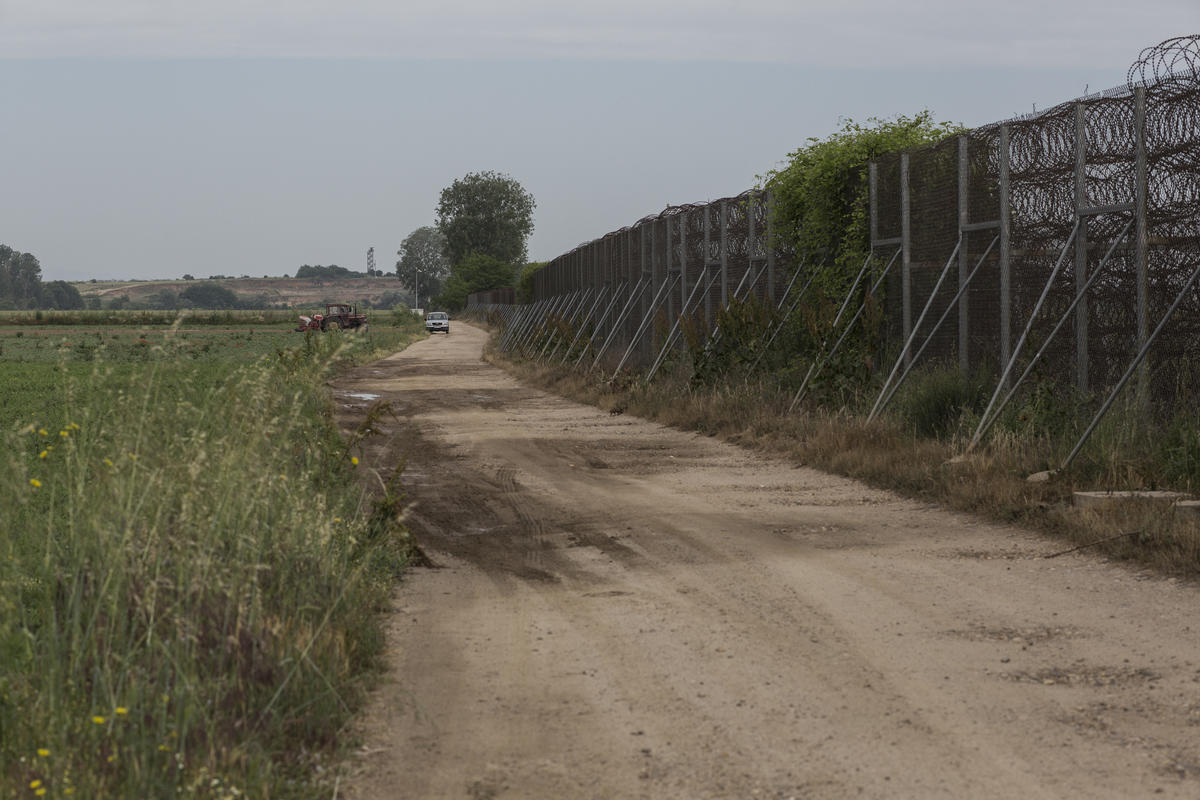Resourcefulness of Zimbabwean asylum seekers impresses UNHCR
Resourcefulness of Zimbabwean asylum seekers impresses UNHCR

PORT ELIZABETH, South Africa, November 21 (UNHCR) - Every client walking into Rutendo Mutopa's hair salon can expect a friendly welcome, including efficient and professional service, based on the premise that good customer care can guarantee a repeat visit. The survival of her family in Zimbabwe depends on it.
Having fled her country's deteriorating political and economic situation in April 2006, each customer Mutopa works on ensures that her two children and family back home don't go hungry.
Mutopa is one of almost a thousand Zimbabwean asylum seekers living in Port Elizabeth's Walmer Township - part of some 28,000 across South Africa. Its rickety shacks and matchbox houses huddle together, out of sight of the plush suburb of Walmer, where many are employed as domestic workers, child minders or gardeners for as little as 30 rand (US$4.50) a day.
"On arrival here, we pay a fee of R20 to employment agencies to help us find jobs," explains Mutopa. "Many employers specifically ask for Zimbabweans because no South African will take on a job for as little as R30. We are terribly exploited," continues Mutopa. She recalls a period soon after her arrival when for eight months she was employed to clean a gym from five in the morning to seven at night, six days a week for just 1,200 rand a month.
Mutopa is among a group of Zimbabwean asylum seekers UNHCR staff in South Africa are meeting under the Age, Gender and Diversity Mainstreaming (AGDM) exercise, an initiative aimed at engaging with persons of concern to help assess their protection risks and find possible solutions to their problems.
Driven by desperation and the obligation to support families back home, most of Mutopa's compatriots have little option but to take these jobs, particularly on arrival. For those who refuse to be exploited, the only other option is self-employment, a choice Mutopa welcomes. With a steady stream of the local women as her clients, Mutopa makes a tidy sum to cover her rent and other necessities.
"The resourcefulness of refugees in Port Elizabeth, compared to other areas in the country is quite impressive," says Monique Ekoko, UNHCR protection officer and leader of the team undertaking the AGDM exercise. "When we met with Zimbabweans, nobody was sitting with cap in hand, waiting for a handout. They are all out there doing something for themselves, so what we have gathered here is that very few if any are waiting for material assistance."
Zimbabwean asylum seekers face the same problems and difficulties as refugees from Somalia, Ethiopia and the Democratic Republic of the Congo, particularly the lack of access to documentation, which has a negative effect on their chances of securing gainful employment.
"The Zimbabwean community in Walmer Township also provides a safety net for newly arrived Zimbabweans with nowhere to go and those who have fallen on hard times, either fleeing political intimidation or economic crisis back home," says Roderick Chimombe, representative of the Zimbabwean community in Walmer.
Chimombe, however, has not found this form of solace among the local population in Port Elizabeth, which is ironically also called the Friendly City. Despite Zimbabwe's proximity to South Africa and its cultural and ethnic ties, Chimombe is disappointed with the reception he has received.
"Xenophobia is rife," he confides. "Whether it is because of ignorance of the Zimbabwean situation within the local South African community or the fact that we are able to sustain ourselves better than many of the locals through whatever employment we are able to find or create, it breaks my heart that we are treated this way. Calling us by that derogatory word, kwerekwere [foreigner], wounds me deeply."
Despite this, Chimombe and his countrymen are making the most of every opportunity available under his asylum seeker permit, which allows him to work and study. Outside of requests for UNHCR's intervention in the acquisition of relevant documentation and information on their rights and obligations, Chimombe and his countrymen seek very little else from the UN refugee agency.
A qualified metallurgist back in Zimbabwe, Chimombe aspires to start a small business in outdoor timber construction, which he is struggling to register on his asylum seeker permit. His only request is support to acquire implements to get the business off the ground.
Already established in her small business, Mutopa rarely leaves her salon before 8pm. Although the hours are long she, like many Zimbabweans here, is determined and driven.
"Despite the problems we encounter here, it is the thought of my children and family back home and the situation they live under that gets me out of bed early and back home late," concludes Mutopa. "My consolation is that I am not being exploited as when I arrived here and that I continue to be able to provide for my family."
By Pumla Rulashe in Port Elizabeth, South Africa


